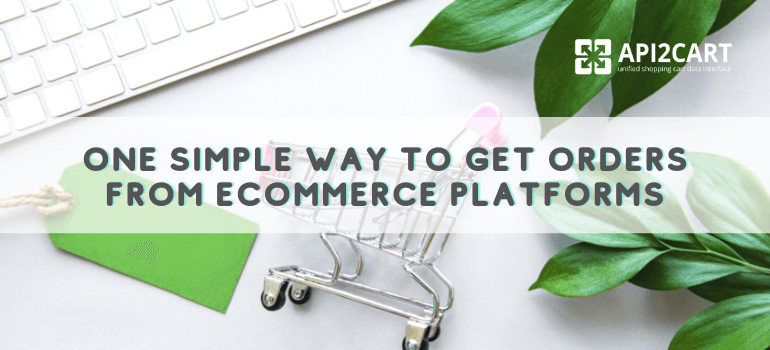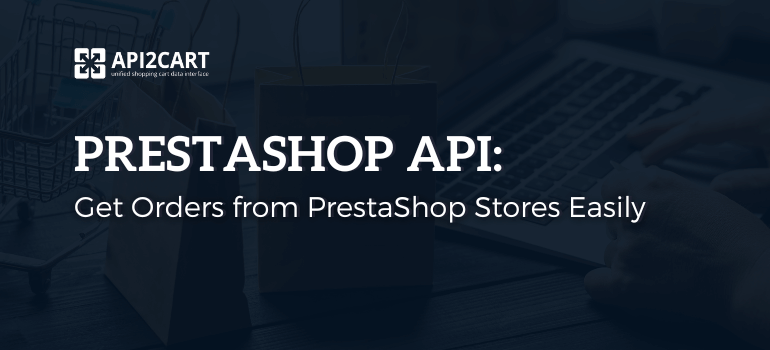
Marketing automation is a must-have for any business. With the help of marketing automation systems they can send offers, discounts or a series of automated emails, identify, track and engage individual customers online, filter potential customers based on the level of engagement and interests, nurture leads along the sales cycle, and much more.
To be competitive on the eCommerce market such systems should have some sort of integration with shopping platforms. The more, the better are the chances to attract merchants. What’s more, one of the priority needs of marketing automation software is getting orders from eCommerce platforms. Usually, it’s too difficult to implement without a robust integration.
In this article, we will tell you a bit about what basic features your marketing automation system can provide store owners with when having a well-established mechanism of importing orders and how through only one API you can get orders from more than 40 eCommerce platforms.
How Marketing Automation Systems Can Work with Imported Orders
Among rich features of marketing automation features, there are some fundamental that can be implemented when your marketing automation system has access to orders.
- Send personalized emails. Marketing automation tools can send personalized emails based on order history. These can be emails featuring new items, discounts and special prices.
- Repurchase reminders. If a customer have a made a purchase from the store, marketing automation systems can send reminders to purchase some products again before they run out. This allows to keep customers engaged with the online store and convert them into a regular one.
- Send order statuses. One more feature marketing automation software can provide merchants with is sending notification emails on order status changes. For that real-time data import is critical.
- Generate reports and statistics. Having the data on orders, products and customers marketing automation systems can compile reports for online store owners to measure the success of their campaigns.
Let’s move to the challenges that you can encounter when developing in-house integration with eCommerce platforms.
eCommerce Integration Challenges
Technological Complexity. Developing a flawless API integration module requires having a wide range of technical knowledge and being aware of the latest trends in API building. Such experts are worth their weight in gold, so finding a highly trained and knowledgeable developer who will develop an integration is one of the biggest challenges for vendors. Security Risks. The consequences of API violations can affect the reputation and finances of a company's assets, entirely from the harm that end customers experience. The security of your connection with another system requires constant monitoring and improvement. High Time Consumption. Developing a properly functioning integration module requires a lot of careful work. Only one setting up connection takes at least 4-12 weeks. This is a time when your developer learns the logic and architecture of the platform, strives to reduce errors, and much more.
High Expensiveness. Have we already mentioned that professional developers worth their weight in gold? If you can find them, compensation for a month of hard integration work will cost you several thousand dollars. Maintenance and Upgrading. When a connection between the system is established, it is not the end of a story. You need IT staff or at least one developer who will constantly monitor any cart version changes. Also, your customers may need special changes and improvements. System’s Diversity. There is a wide variety of architectural styles of software and API. Due to the fact that each system has its own specific logic, each integration has its own unique challenges. API2Cart has everything for easy integration with shopping platforms, as well as all the necessary methods to manage marketing automation operations: You can find out about new orders in stores in two ways: By setting webhooks for the order.add event, you will receive a notification each time a new order is placed. Compared to API surveys, using webhooks is much more profitable because it reduces server load, saves API requests, and provides more up-to-date information. Another option for tracking new orders is to execute order.list method regularly to get a list of orders that will be imported into your system. This method also allows you to filter orders by id, store id, customer id, customer email, order status, order id, financial status, shipping provider, and time parameters such as create_from, created_to and modified_from, modified_to. API2Cart provides a unified API to connect with over 40 shopping platforms in one go. Integration with shopping platforms via API2Cart can bring the following benefits: If you are interested in integrating your B2B solution with many shopping platforms and would like to talk about the technical issues, please schedule a consultation with our representative or try how API2Cart would work for your business.
How API2Cart Can Help Automate Importing Orders
Why API2Cart



